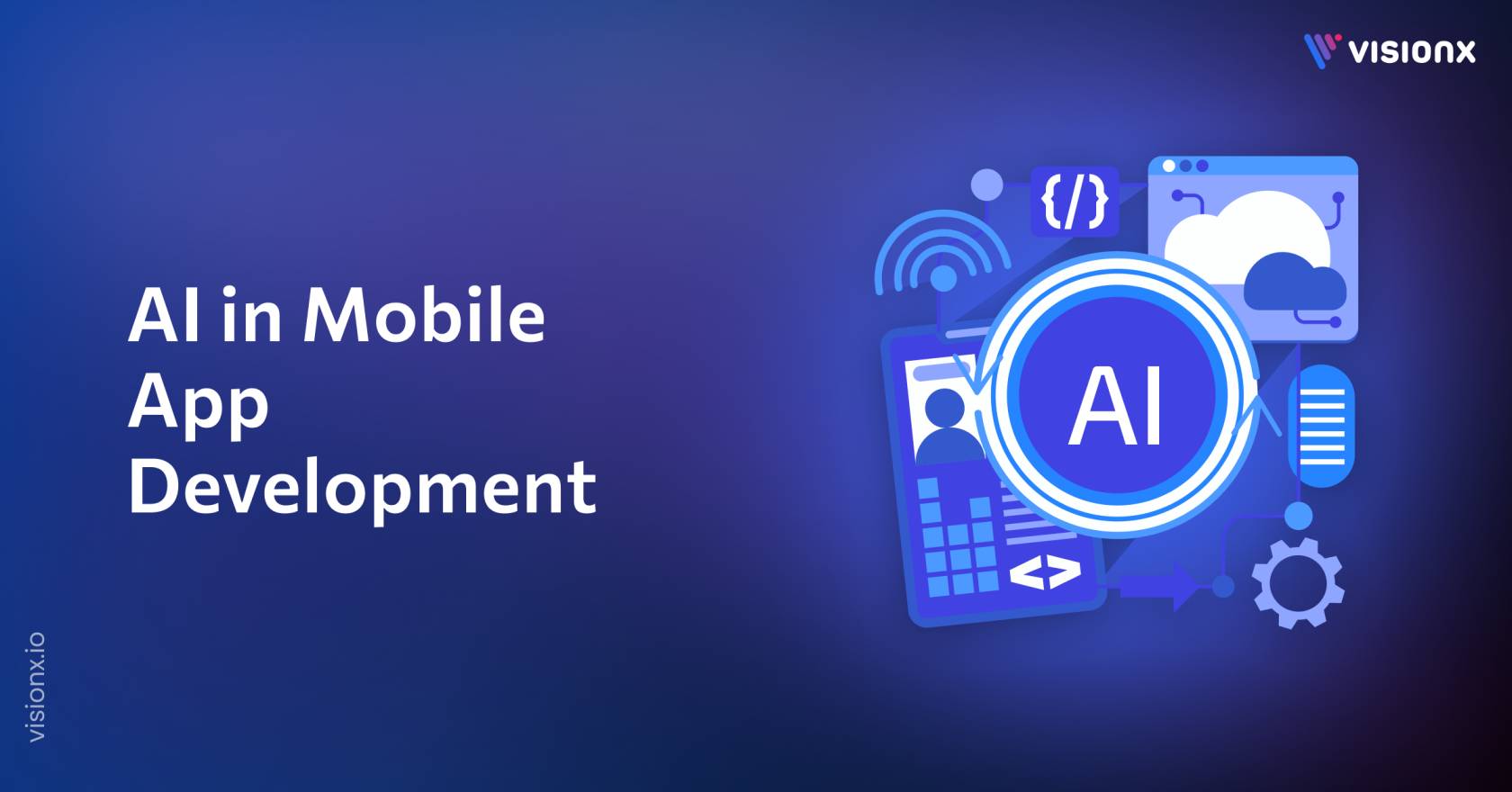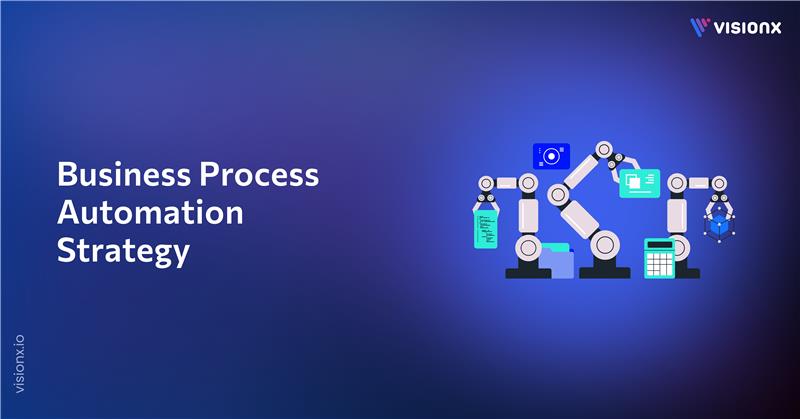A few years ago, most apps worked the same for everyone. They followed fixed rules and treated every user alike, no matter their preferences or habits. But then AI in app development came along and started to change that.
In the first half of 2025, close to 700 million people used AI-powered apps regularly. These apps can track patterns in how you use them and adjust in real time. They answer questions right away, understand photos or voices, and can even personalize content based on your habits.
For developers, AI in app development makes it possible to add new features, ameliorate user relations, and boost engagement without starting from scratch. In this post, we’ll look at the role of AI in mobile app development, the benefits it brings, and how to use AI in app development process itself.
What is AI in App Development?
AI in app development is the process of adding artificial intelligence into the mobile or web app development process to improve how apps work and how people use them. It brings in features like personalized recommendations, predictive analytics, and chatbots that make apps more helpful and easier to use. AI can also help in code generation, running tests, and spotting bugs, which helps speed up development.
The intention around AI in mobile app development is to help apps understand humans and learn about their needs so that they can respond in a way that feels personal to a user. An AI-enabled app can translate languages instantly, recommend music you might want to listen to, and help you shop by recognizing an item in the photo.
The core parts of artificial intelligence in mobile applications work like this;
- Machine learning development helps apps learn from data so they can make better predictions over time.
- Natural language processing allows apps to understand and respond to human speech or text.
- Computer vision solutions let apps identify and process images or videos.
Today, businesses of all sizes can integrate AI into the app development process to add features that boost user engagement and expand their user base.
The Need for AI in Mobile App Development
The use of mobile apps has grown significantly in our daily lives. The typical smartphone user in 2025 uses mobile apps for about 4.9 hours per day. Users expect quick, useful, and customized experiences because they spend so much time on applications.
In mobile app development, AI enhances user behavior understanding and enables it to provide useful and personalized features. It can provide instantaneous help, understand and anticipate user needs before they can articulate them, and adjust content to keep the user drawn in.
AI in app development helps accomplish more tasks with less effort for developers and companies. Automated tasks include fraud detection, product recommendation, and user data analysis. Time is saved, and the whole experience is enhanced.
Benefits of AI in Mobile App Development
AI in app development offers several key benefits, making apps smarter and easier to use. I have listed some of the benefits below.
Enhance User Experience
AI processes user data to deliver individualized recommendations and content customization. AI modifies app interfaces depending on usage by individuals, making apps more natural and easier to use.
AI-powered chatbots manage customer support and enable conversations to feel personal. Natural language processing enables apps to comprehend and react to speech or text, making interactions more fluid.
Speed Up Development
AI helps developers write code faster by generating snippets and running tests automatically. It finds bugs early and suggests fixes, which improves app reliability. This cuts down manual work and shortens the time to complete the application development process. In simple words, AI helps build apps more efficiently and with fewer errors.
Build AI-First Apps
Developers can create apps that adapt in real time to user needs. These apps offer smarter features that feel fresh and helpful. It helps create smarter, more responsive apps by using AI in app development to meet real user needs.
Anticipate User Needs
AI looks at old information to guess what people might want in the future. Programs use predictive analytics to offer fitting stuff or actions before users search for them, which makes things run more smoothly and feel more natural. This also helps companies stay on top by planning changes based on how people use their products.
Optimize Resources and Offline Capabilities
AI for app development examines how apps perform and how much effort goes into developing them. This helps point out where to put resources. It stops money from being spent on features that users don’t need. Rather, it concentrates on making key enhancements.
AI also allows applications to function even without constant internet connectivity. It achieves this by handling data on the device. This enables users to access customized features and swift responses even offline. And applications become more user-friendly in areas with unreliable internet connections.
Most Common Use Cases of AI in App Development
Here are some common ways AI improves app functionality and user experience:
Personalized Recommendations
AI in mobile app development monitors user activities for delivering customized content suggestions. The system enhances user interaction and maintains their continued participation. Streaming apps use viewing history to make show recommendations, while shopping apps suggest items from previous purchases.
Voice Assistants & Conversational AI
AI in app development empowers applications to decode and reply to human language, which simplifies communications and makes them more logical. Users can speak or enter requests to receive data or carry out tasks without using their hands. As an example, Siri is able to schedule alerts or locate routes, whereas in-app chatbots provide users with assistance immediately.
Augmented Reality (AR) Enhancements
AI and AR work together to produce customized, immersive app experiences. To make digital elements blend in with the real world, they enhance object detection and content placement. IKEA’s app, for instance, shows off furniture in a space, and Snapchat filters change their appearance in real time.
Sentiment Analysis
AI uses customer sentiment analysis to detect tone and emotion in messages or reviews. This improves moderation and personalizes content. For example, social media apps flag harmful posts, and e-commerce apps adjust recommendations based on review sentiment.
How to Use AI to Create an App
AI app development can appear complicated, but it is manageable when broken down into clear and manageable steps.
1. Start With a Clear Idea
First, figure out exactly what you want your app to do with AI in app development. Maybe it’s recommending products, understanding voice commands, or answering questions automatically. Knowing this upfront saves you from wasting time on features you don’t really need.
2. Get the Right Data
AI needs good data to work well. So, gather information that fits your app’s purpose. For example, if it’s an AI in ecommerce app development, you want data about what customers like and buy. Clean up the data so it’s easy for the AI to learn from it.
3. Pick the Tools and Models
Many software such as TensorFlow or PyTorch are available to help you develop AI features. Select the most appropriate machine learning models for your project. For example, if your application involves images, image recognition is a suitable choice, and if it involves dialoging with users, natural language processing is more appropriate. There are instances where an AI pre-built tool can be the reason for a timely cut in the overall app development process.
4. Add AI to Your App Smoothly
Don’t wait until the end to add AI features. Build them into your app early using APIs or embedding models directly. This approach helps the app handle tasks in real time and improves overall performance. Planning AI integration from the start makes sure your app runs smoothly and scales well as more users join.
5. Test, Learn, and Improve
Once you launch your app, monitor the behavior of users closely and collect feedback on a regular basis. Take this practical data to adjust your AI models, solving mistakes and raising the precision of the models. Consistent corrections contribute to the preservation of the users’ trust in your app and the retention of the market where changes occur rapidly.
Best Practices for AI App Development
To build an AI-powered app successfully, meticulous planning and well-defined steps are required. Here are some best practices to consider for integrating AI in app development.
- First of all, define what the utilization of AI in app development is to accomplish so as to maintain the concentration of the project.
- Collect and use data that is not only voluminous but also relevant and of good quality for artificial intelligence in mobile applications to deliver accurate results.
- Launch your AI app with basic features, and then evolve it as per the user feedback to keep the user engagement high.
- Keep user information safe through robust security protocols, and be open about using AI to create an app.
- Keep the line of communication open among the developers, designers, and business team members to ensure the smooth flow of the app development process.
Future Trends in AI App Development
The future of AI in app development will shape how apps perform and interact with users over the next years.
Edge AI for Faster Processing
Edge AI in app development runs on devices instead of the cloud. This makes apps faster, more private, and usable even without internet access. For example, photo-editing apps apply AI effects instantly without sending images online.
Generative AI Integration
Generative AI development lets apps create new text, images, audio, or designs on demand. This adds more interactive and creative features. For example, design apps produce custom graphics on request, and language apps give personalized learning materials.
Emotion-Aware Apps
Through the use of AI in app development, apps can identify emotions in text patterns, voice tones, and facial expressions. This enables more human-like responses from apps. For instance, customer service apps modify the tone of conversations, and mental health apps modify support according to mood.
How VisionX is Transforming AI Integration in Mobile Apps
Many companies find it difficult to seamlessly integrate AI features into their mobile applications. VisionX solves this issue by providing customized AI solutions that are made to meet particular requirements without making things too complicated.
VisionX provides tailored AI models and tools that adjust to specific business objectives, in contrast to generic platforms.
Here’s how VisionX stands apart:
- The platform delivers industry-specific solutions starting from ecommerce and extending to healthcare.
- Offers simplified AI app integration through pre-built APIs, together with professional assistance.
- User engagement reaches higher levels because of AI-powered features that deliver personalized experiences.
- Streamlines AI adoption, which cuts down both development time and associated costs.
- Continuously improves its AI models by analyzing actual user information and their feedback.
VisionX is at the forefront of assisting companies in creating mobile apps that are more intelligent, responsive, and effective as AI develops.
We enable businesses to confidently and easily realize the full potential of AI in app development.
FAQs
How long can it take to develop an AI app?
It depends on the app’s complexity and AI features. Simple apps with basic AI can take a few months, while more advanced apps may require six months or more. Planning and clear goals help speed up AI app development.
How much does it cost to build an AI app?
The price variations depend heavily upon the scope of AI capabilities, together with the platform tools, customization levels, and development team size.
How can small businesses use AI in mobile app development?
Small business organizations have access to pre-built AI tools that allow them to add smart features through minimal financial investment. The availability of AI tools enables businesses to enhance their customer support while personalizing marketing and automating standard operations, which makes AI for app development accessible to all organizations.
How does AI assist in app development without coding?
Low-code and no-code AI platforms provide users with simple interfaces and drag-and-drop tools to integrate AI features. The solutions enable people who lack programming skills to incorporate artificial intelligence in mobile applications through user-friendly tools.


